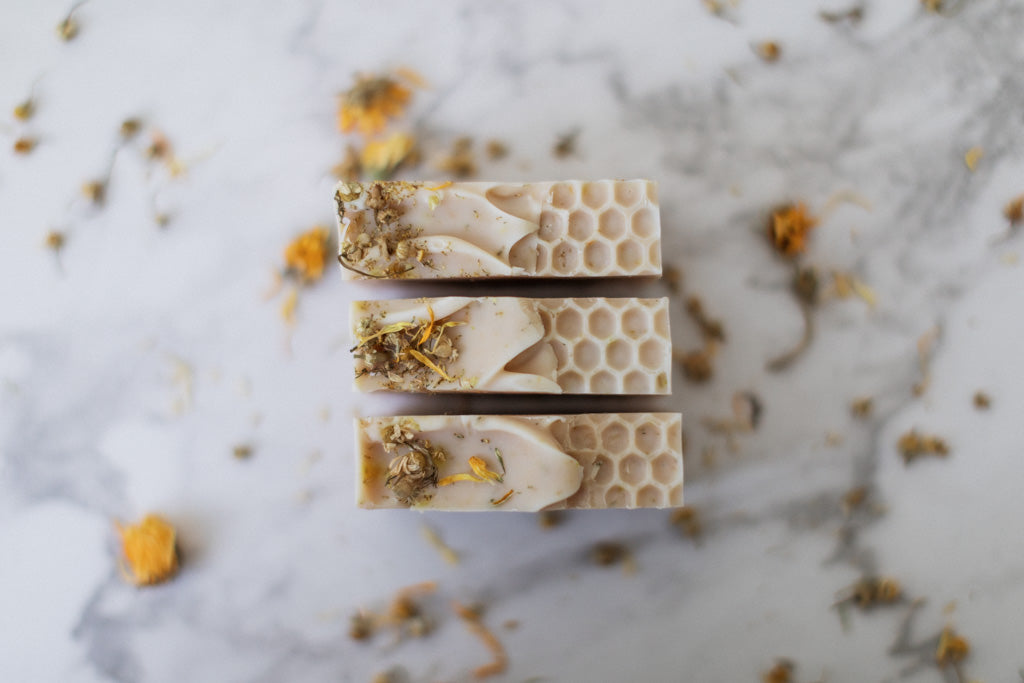
Is handmade soap bad for facial skin?
Share
As skincare enthusiasts, we all wonder: Is handmade soap suitable for our delicate facial skin? This question stems from the earlier days when soap was primarily used for washing clothes or hands. However, with modern artisans creating handmade bars, this notion is now outdated. Let's explore the advantages of using properly formulated handmade soap for our face.
Understanding pH in handmade soaps
pH stands for "potential of hydrogen" and is a measure of how acidic or alkaline a substance is. The pH scale ranges from 0 to 14, with 7 being neutral. Our skin's natural pH hovers around 5.5, making it slightly acidic. Handmade soaps have a pH higher than 7, making them naturally cleansing.

The skin's natural barrier
You may wonder why our skin's pH matters. Well, our skin has a natural protective barrier known as the "acid mantle." This delicate film acts as a defence against harmful bacteria, environmental pollutants, and moisture loss. When the skin's pH is in balance, the acid mantle functions optimally, keeping our skin healthy, hydrated, and protected.
Achieving the ideal balance
While handmade soaps boast a pH above 7, there's a way of creating a balance that respects your skin's needs. Through meticulous craftsmanship, the soap's formulation is perfected to achieve an ideal balance, resulting in a product that leaves your skin feeling refreshed, nourished, and pampered. The inclusion of superfat and other thoughtfully selected ingredients ensures the soap remains gentle on your skin, providing a truly indulgent and beneficial cleansing experience.

What is superfat?
Superfatting is a crucial technique in handmade soap-making that involves incorporating extra nourishing oils into the soap formula. These oils remain unreacted during the saponification process, ensuring that the soap retains their moisturising properties, which are beneficial for the skin. The careful selection of oil/butter types is vital as each offers unique qualities, such as coconut oil for lathering or cocoa butter for added richness, contributing to a luxurious and skin-friendly final product.
Benefits of superfat
Superfat is a boon for your skin with several advantages:
Gentle on the skin: The additional oils in superfatted soap act as natural moisturisers, keeping your skin soft and supple without causing pore blockages.
Nourishment: These bonus oils enrich your skin with essential nutrients, ensuring a healthy and glowing complexion with each use.
Avoids over-drying: Unlike commercial soaps, superfatted handmade soap prevents your skin from feeling dry or tight after use.
Perfect balance: With the right amount of superfat, the soap maintains its cleansing efficacy while delivering a luxurious moisturising experience, striking the perfect balance for your skin’s needs.
Natural barrier support: Butters like shea butter help form a light, breathable protective layer on the skin, locking in moisture and shielding against environmental dryness—perfect for sensitive or compromised skin.
In the soap creation process, the careful selection of oil and butter types, such as coconut oil for lathering or shea butter for intense hydration and skin protection, enhances specific properties of the soap, making it an artful and purposeful endeavour.
Additionally, glycerine, playing just as significant a role, contributes to determining the soap’s quality. Together, these thoughtfully curated elements create a harmonious and nourishing soap that elevates your skincare routine to a delightful and enriching experience.

What is glycerine, and why do we love it?
One essential ingredient we cherish is glycerine, aptly called the "moisture magnet." Its value lies in its remarkable ability to nourish the skin, attracting and locking in moisture without clogging pores. This moisture-retaining attribute occurs naturally during the soap-making process, particularly in cases where saponification takes place at higher temperatures, resulting in higher glycerine content in the final product.
Why is glycerine removed from commercial soap bars?
Glycerine is removed from commercial soap bars primarily for economic reasons. Glycerine is a valuable and versatile ingredient with various applications in industries like cosmetics, pharmaceuticals, and food production. It has a higher market value as a separate product than when left in the soap. By extracting glycerine from soap, manufacturers can sell it or use it in more expensive products, maximising their profits.
Additionally, removing glycerine from soap can result in a harder and longer-lasting bar, which is more cost-effective for mass production. However, this process also makes the soap less moisturising and can lead to a dry and less effective product compared to handmade soaps that retain the naturally occurring glycerine.

At Chalke Valley Soaps, we not only wholeheartedly preserve glycerine in our soap bars, but we also take it a step further by actively boosting its production using advanced techniques. Our dedication to this valuable ingredient ensures an even higher level of moisture-locking glycerine in every soap we create.
Natural additives
The inclusion of clays not only imparts beautiful natural colours to our soaps but also assists in cleansing, exfoliating, and nourishing the skin with a wealth of minerals. To discover more about the advantageous properties of all the natural ingredients we use, you can explore detailed information here.
How about synthetic ingredients?
While at Chalke Valley Soaps, we are committed to using 100% natural products, it's essential to recognise that some synthetic ingredients can also be safe and effective for skincare. The key lies in the formulation and careful selection of ingredients. High-quality synthetic additives, when used responsibly, can provide specific benefits and serve various skincare needs. However, natural ingredients often come with additional nutrients and potential advantages that can be harnessed to promote overall skin health and well-being.
Are all handmade soaps good?
The short answer is no. While the term "handmade" might suggest purity and naturalness, the quality of handmade soaps can vary significantly depending on the formulation. Just because a soap is crafted by hand doesn't guarantee that it's free from harmful synthetic ingredients or properly formulated.
As a cautious consumer, it's essential to carefully check the ingredients before making a purchase. If you come across any unfamiliar components, a quick Google search can provide valuable insights. And if you ever have any questions or concerns, don't hesitate to reach out to us; we're more than happy to help! Your skin deserves the best, and we're dedicated to providing you with truly nourishing and genuinely handmade soaps.

At Chalke Valley Soaps, our glycerine-rich formulations are crafted professionally with great care to maintain harmony with the soap's natural pH, ensuring that they leave the skin feeling irresistibly soft and moisturised. To achieve this level of excellence, we collaborate closely with chartered chemists and botanists, leveraging their expertise to create all-natural bars that are not only nourishing but also incredibly moisturising. Our commitment to using high-quality ingredients and advanced techniques further enhances the efficacy of our handmade soaps.
Generations of soap makers
Despite not explicitly claiming to heal skin issues, the impact of handmade soap can't be overlooked. Personally, I have witnessed its miraculous effects as it resolved my persistent acne concerns. Moreover, numerous users with eczema or dry skin have expressed their satisfaction, claiming significant improvements since incorporating our products into their routines.
The complete skincare experience
Gentle cleansing: Our meticulously balanced formula ensures effective cleansing without compromising your skin's natural barrier.
Nourishing properties: With the addition of superfat and glycerine preserving techniques, your skin receives an extra boost of protection, moisture and nourishment.
Soothing botanicals: Essential oils and botanical extracts provide soothing and toning benefits to your skin.
Written by Helga from Chalke Valley Soaps.





